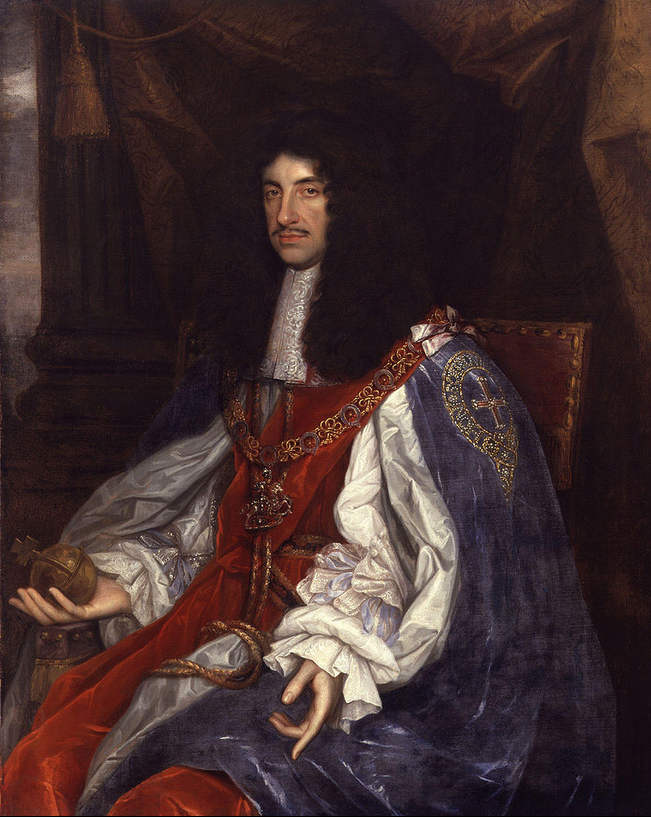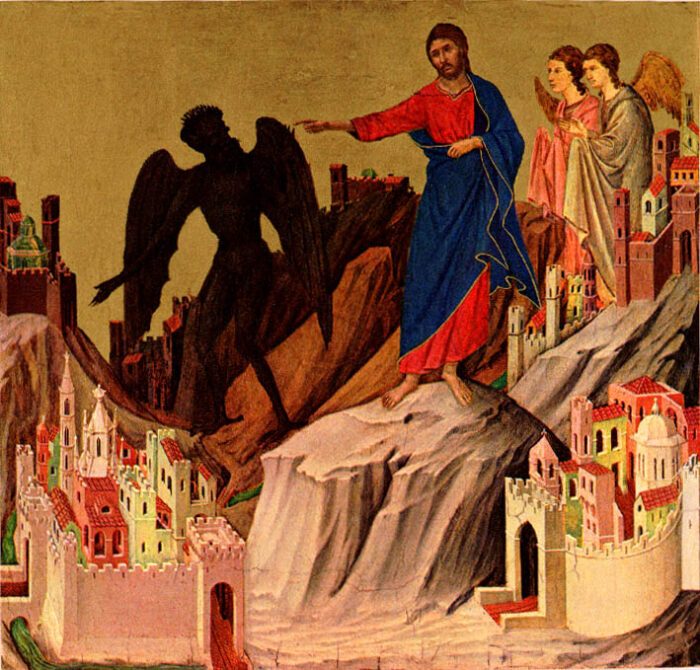Editor’s note: The following is extracted from Twelve Types, by G.K. Chesterton (published 1902).
There are a great many bonds which still connect us with Charles II, one of the idlest men of one of the idlest epochs. Among other things Charles II represented one thing which is very rare and very satisfying; he was a real and consistent sceptic. Scepticism both in its advantages and disadvantages is greatly misunderstood in our time. There is a curious idea abroad that scepticism has some connection with such theories as materialism and atheism and secularism. This is of course a mistake; the true sceptic has nothing to do with these theories simply because they are theories. The true sceptic is as much a spiritualist as he is a materialist. He thinks that the savage dancing round an African idol stands quite as good a chance of being right as Darwin. He thinks that mysticism is every bit as rational as rationalism. He has indeed the most profound doubts as to whether St. Matthew wrote his own gospel. But he has quite equally profound doubts as to whether the tree he is looking at is a tree and not a rhinoceros.
This is the real meaning of that mystery which appears so prominently in the lives of great sceptics, which appears with especial prominence in the life of Charles II. I mean their constant oscillation between atheism and Roman Catholicism. Roman Catholicism is indeed a great and fixed and formidable system, but so is atheism. Atheism is indeed the most daring of all dogmas, more daring than the vision of a palpable day of judgment. For it is the assertion of a universal negative; for a man to say that there is no God in the universe is like saying that there are no insects in any of the stars.
Thus it was with that wholesome and systematic sceptic, Charles II. When he took the Sacrament according to the forms of the Roman Church in his last hour he was acting consistently as a philosopher. The wafer might not be God; similarly it might not be a wafer. To the genuine and poetical sceptic the whole world is incredible, with its bulbous mountains and its fantastic trees. The whole order of things is as outrageous as any miracle which could presume to violate it. Transubstantiation might be a dream, but if it was, it was assuredly a dream within a dream. Charles II sought to guard himself against hell fire because he could not think hell itself more fantastic than the world as it was revealed by science. The priest crept up the staircase, the doors were closed, the few of the faithful who were present hushed themselves respectfully, and so, with every circumstance of secrecy and sanctity, with the cross uplifted and the prayers poured out, was consummated the last great act of logical unbelief.
The problem of Charles II consists in this, that he has scarcely a moral virtue to his name, and yet he attracts us morally. We feel that some of the virtues have been dropped out in the lists made by all the saints and sages, and that Charles II was pre-eminently successful in these wild and unmentionable virtues. The real truth of this matter and the real relation of Charles II to the moral ideal is worth somewhat more exhaustive study.
It is a commonplace that the Restoration movement can only be understood when considered as a reaction against Puritanism. But it is insufficiently realised that the tyranny which half frustrated all the good work of Puritanism was of a very peculiar kind. It was not the fire of Puritanism, the exultation in sobriety, the frenzy of a restraint, which passed away; that still burns in the heart of England, only to be quenched by the final overwhelming sea. But it is seldom remembered that the Puritans were in their day emphatically intellectual bullies, that they relied swaggeringly on the logical necessity of Calvinism, that they bound omnipotence itself in the chains of syllogism. The Puritans fell, through the damning fact that they had a complete theory of life, through the eternal paradox that a satisfactory explanation can never satisfy. Like Brutus and the logical Romans, like the logical French Jacobins, like the logical English utilitarians, they taught the lesson that men’s wants have always been right and their arguments always wrong. Reason is always a kind of brute force; those who appeal to the head rather than the heart, however pallid and polite, are necessarily men of violence. We speak of ‘touching’ a man’s heart, but we can do nothing to his head but hit it. The tyranny of the Puritans over the bodies of men was comparatively a trifle; pikes, bullets, and conflagrations are comparatively a trifle. Their real tyranny was the tyranny of aggressive reason over the cowed and demoralised human spirit. Their brooding and raving can be forgiven, can in truth be loved and reverenced, for it is humanity on fire; hatred can be genial, madness can be homely. The Puritans fell, not because they were fanatics, but because they were rationalists.
When we consider these things, when we remember that Puritanism, which means in our day a moral and almost temperamental attitude, meant in that day a singularly arrogant logical attitude, we shall comprehend a little more the grain of good that lay in the vulgarity and triviality of the Restoration. The Restoration, of which Charles II was a pre-eminent type, was in part a revolt of all the chaotic and unclassed parts of human nature, the parts that are left over, and will always be left over, by every rationalistic system of life. This does not merely account for the revolt of the vices and of that empty recklessness and horseplay which is sometimes more irritating than any vice. It accounts also for the return of the virtue of politeness, for that also is a nameless thing ignored by logical codes. Politeness has indeed about it something mystical; like religion, it is everywhere understood and nowhere defined. Charles is not entirely to be despised because, as the type of this movement, he let himself float upon this new tide of politeness. There was some moral and social value in his perfection in little things. He could not keep the Ten Commandments, but he kept the ten thousand commandments. His name is unconnected with any great acts of duty or sacrifice, but it is connected with a great many of those acts of magnanimous politeness, of a kind of dramatic delicacy, which lie on the dim borderland between morality and art. ‘Charles II,’ said Thackeray, with unerring brevity, ‘was a rascal but not a snob.’ Unlike George IV he was a gentleman, and a gentleman is a man who obeys strange statutes, not to be found in any moral text-book, and practises strange virtues nameless from the beginning of the world.
So much may be said and should be said for the Restoration, that it was the revolt of something human, if only the débris of human nature. But more cannot be said. It was emphatically a fall and not an ascent, a recoil and not an advance, a sudden weakness and not a sudden strength. That the bow of human nature was by Puritanism bent immeasurably too far, that it overstrained the soul by stretching it to the height of an almost horrible idealism, makes the collapse of the Restoration infinitely more excusable, but it does not make it any the less a collapse. Nothing can efface the essential distinction that Puritanism was one of the world’s great efforts after the discovery of the true order, whereas it was the essence of the Restoration that it involved no effort at all. It is true that the Restoration was not, as has been widely assumed, the most immoral epoch of our history. Its vices cannot compare for a moment in this respect with the monstrous tragedies and almost suffocating secrecies and villainies of the Court of James I. But the dram-drinking and nose-slitting of the saturnalia of Charles II seem at once more human and more detestable than the passions and poisons of the Renaissance, much in the same way that a monkey appears inevitably more human and more detestable than a tiger. Compared with the Renaissance, there is something Cockney about the Restoration. Not only was it too indolent for great morality, it was too indolent even for great art. It lacked that seriousness which is needed even for the pursuit of pleasure, that discipline which is essential even to a game of lawn tennis. It would have appeared to Charles II’s poets quite as arduous to write ‘Paradise Lost’ as to regain Paradise.
All old and vigorous languages abound in images and metaphors, which, though lightly and casually used, are in truth poems in themselves, and poems of a high and striking order. Perhaps no phrase is so terribly significant as the phrase ‘killing time.’ It is a tremendous and poetical image, the image of a kind of cosmic parricide. There is on the earth a race of revellers who do, under all their exuberance, fundamentally regard time as an enemy. Of these were Charles II and the men of the Restoration. Whatever may have been their merits, and as we have said we think that they had merits, they can never have a place among the great representatives of the joy of life, for they belonged to those lower epicureans who kill time, as opposed to those higher epicureans who make time live.
Of a people in this temper Charles II was the natural and rightful head. He may have been a pantomime King, but he was a King, and with all his geniality he let nobody forget it. He was not, indeed, the aimless flaneur that he has been represented. He was a patient and cunning politician, who disguised his wisdom under so perfect a mask of folly that he not only deceived his allies and opponents, but has deceived almost all the historians that have come after him. But if Charles was, as he emphatically was, the only Stuart who really achieved despotism, it was greatly due to the temper of the nation and the age. Despotism is the easiest of all governments, at any rate for the governed.
It is indeed a form of slavery, and it is the despot who is the slave. Men in a state of decadence employ professionals to fight for them, professionals to dance for them, and a professional to rule them.
Almost all the faces in the portraits of that time look, as it were, like masks put on artificially with the perruque. A strange unreality broods over the period. Distracted as we are with civic mysteries and problems, we can afford to rejoice. Our tears are less desolate than their laughter, our restraints are larger than their liberty.









